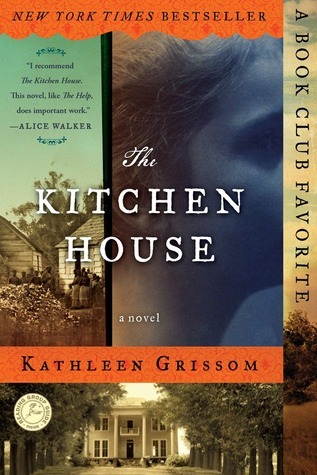The Kitchen HouseBy Kathleen Grissom I didn’t want to read The Kitchen House. I lo
The Kitchen HouseBy Kathleen Grissom I didn’t want to read The Kitchen House. I loathed the idea of spending any time in a fictionalized world built around slavery and southern plantation living. But reader after reader praised the novel, so I downloaded the “preview” before splurging the $1.99 on a title I was determined not to like. By the time I tore through the first few chapters, the limited time sale was over and the book was $11.99. I didn’t care. I bought it immediately so I wouldn’t have to stop.The Kitchen House follows the story of Lavinia, an Irish immigrant suppressing a terrible past at the tender age of 7. Purchased by a Virginian plantation owner, she works and lives in the Kitchen House, the slave quarters that serves the “Big House.” With a name like Lavinia, I was concerned for her well-being from the get-go. (See Titus Andronicus; Season 2 of Downton Abbey). But Lavinia turns out to be plucky, curious and extremely loving. Lavinia has a unique perspective as both an indentured servant to the Big House and as a white girl in the south. While the Kitchen House inhabitants become her family, the Big House tenants also have their eyes on her. And though she crosses many of the divides established as a result of slavery over her lifetime, in a way, she is the most isolated of all the characters. She doesn’t truly belong anywhere. What’s interesting in my reluctance to read the book is that it directly mirrors Grissom’s reluctance to write it. While restoring a plantation tavern in Virginia, she happened upon a location in the plans called “Negro Hill.” It haunted her so much that one day journaling, a fictional story about its legacy poured onto her paper. Even Grissom herself was disturbed by the tale, but it, like the book’s heroine, was stubborn, and would not be altered. The Kitchen House has heart smeared across every page. It’s laden with tears and tragedy, buoyed by stubborn determination and an inextinguishable need to survive. It hurts right below the sternum, like a punch to the gut that allows you to take bigger, fresher breaths. The reluctant reader of a reluctant writer, it strikes me that perhaps the stories we avoid writing are the ones that most need to be written; and the stories we avoid reading may be the very ones we need to read the most. -- source link
#best books#readwomen#kathleen grissom#page turner#read me#quick read#one-sitting read#great reads#bookblog#brennanbookblog#bookworm#book club#lavinia#touchstone
